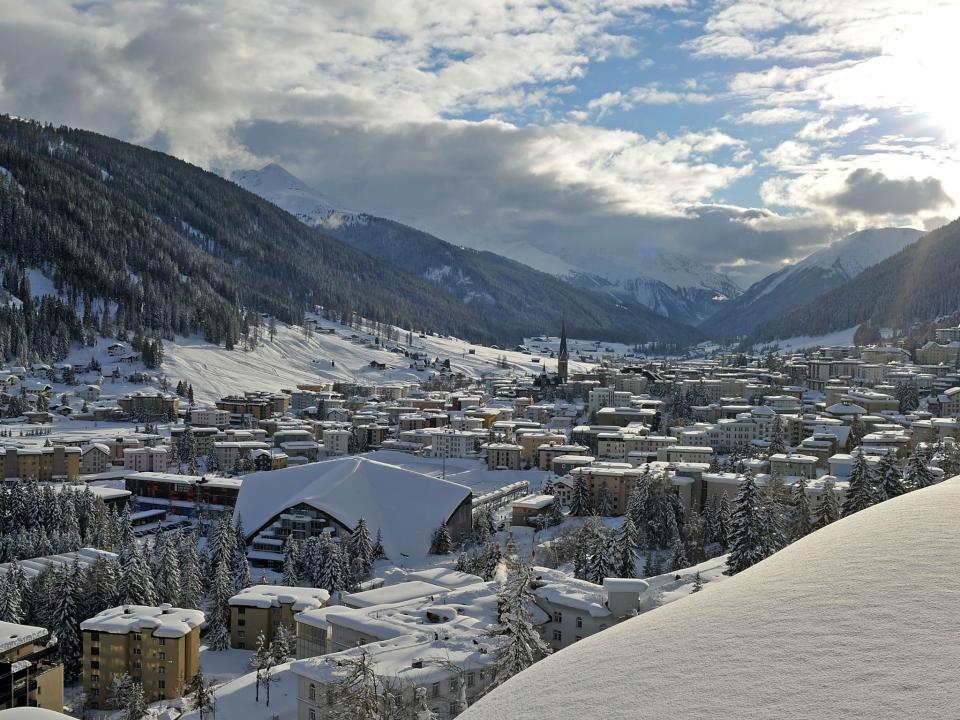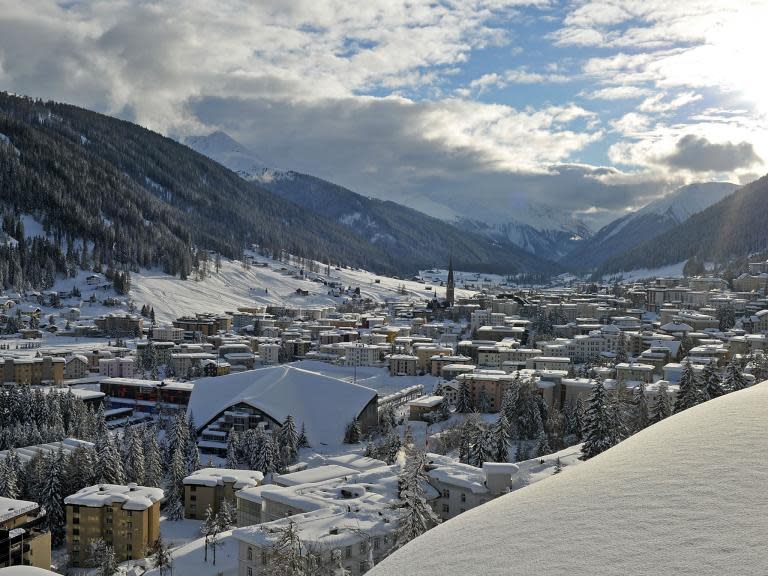The billionaires of Davos are not the cause of raging inequality, just its painful symptom
“Davos is where billionaires tell millionaires about what the middle class feels,” jokes Jamie Dimon.
As the billionaire head of Wall Street’s largest bank, JP Morgan, and a veteran attendee of the World Economic Forum, he should know.
And there’s truth in jest. In the several years in which I covered Davos on the ground for The Independent there would always be panels and lunches at which the issue of economic inequality was earnestly and urgently discussed by smartly dressed men and women with telephone-number travel allowances.
Yet, as many have noted, these many brainstorming sessions don’t appear to have had much impact on the world outside the small Swiss mountain resort.
Bloomberg has examined how the fortunes of 12 prominent billionaire attendees at the 2009 Davos conference have evolved over the past decade.
Bill Gates’ wealth is up $44bn. Mark Zuckerberg’s fortune has risen by $56bn. Rupert Murdoch is $15bn better off. And Dimon has himself joined the billionaire class with a $1.1bn uplift to his net worth. The collective wealth of this gilded dozen is estimated to have increased by $175bn in the past 10 years.
But over this same period median incomes in the US have stagnated. And in the UK average real wages have still not recovered to where they were in 2008.
The Organisation for Economic Cooperation and Development calls the wage growth slowdown across rich countries since the financial crisis “unprecedented”. One group, though, has been spared: “Real labour incomes of the top 1 per cent of earners have increased much faster than those of median full-time workers in recent years, reinforcing a long-standing trend.”
Debates on economic equality have a tendency to degenerate into a rather tedious technical squabble about what statistical measure one is using, the time period under discussion, which groups are being compared, whether the trend relates to income or wealth and so on.
Yet if one takes the fortunes of the global super-rich and compares them to those of the typical citizen of the developed world it’s pretty clear that the gap has grown. The very rich really have got richer.
The context makes this rise in inequality even more toxic. The financial crisis – where ordinary western taxpayers were forced to bail out billionaire bankers while often losing their own jobs – was supposed to lead to a shakeout.
There were expectations that finance’s awesome implosion and the catastrophic spillover effect on the rest of the economy would prompt a shift in the way things work – that we would transition from speculation to investment, from gains piling up at the top to broad-based prosperity, from corporate greed to corporate responsibility.
It hasn’t happened. And one of the fruits of this failure in many western countries has been a surge of destructive populism and popular disaffection with (often shading into contempt for) mainstream politicians and large corporations.
So is a “globalist” Davos mentality among our economic and political elites blocking change? Is it some kind of conspiracy?
The trouble with this view, variants of which can be heard both on the right and the left nowadays, is that it ascribes too much importance to the World Economic Forum.
As my colleague Hamish McRae has argued, the best way to think about Davos is primarily as a business conference; an opportunity for CEOs, financiers and consultants to socialise with their peers and feel important. And they (or rather the shareholders in their companies) pay through the nose for the privilege of attending.
The celebrities are there to entertain the executives. But so too, believe or not, are the Nobel prize-winning economists, the charity bosses and even the political leaders who turn up to drum up inward investment.
Davos is not a cause of global inequality, more a symptom.
Don’t look to the World Economic Forum for a diagnosis of the dysfunction in our economies – and certainly don’t look to it for any substantive action to reduce inequality.
That corrective will only come, if it does, from the grassroots, not from hot air on a cold Swiss mountaintop.

 Yahoo News
Yahoo News 

